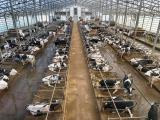Dec 9, 2008 (CIDRAP News) – Health officials in Hong Kong today said they have detected an H5 avian influenza outbreak at a poultry farm in Yuen Long, marking the country's first farm-based outbreak since 2003.
York Chow, Hong Kong's secretary for food and health, said in a press release today that the H5 avian flu virus struck 60 chickens, which died yesterday. He did not say if the virus at the farm was the highly pathogenic H5N1 subtype.
Malik Peiris, a virologist at the University of Hong Kong, said it is "highly likely" that the virus is the lethal H5N1 strain, because other strains aren't as deadly as the one involved in the outbreak appears to be, according to a report from Reuters today. "But this has to be confirmed," he said.
Chow said in the press release that he elevated Hong Kong's avian flu alert to serious after receiving the H5 test results. He said the agriculture department will cull 80,000 chickens within a 3-km radius of the index farm and will destroy another 10,000 chickens from the area that have been transported to a wholesale market.
Hong Kong's government has also banned the export of chickens from all of the special administrative region's farms and has halted all poultry imports, both effective for the next 21 days.
He said Hong Kong's Center for Health Protection would monitor the status of the farm's owners and workers, none of whom have developed symptoms. Chow also said in the statement that veterinary officials have closed an aviary park near the farm and are monitoring the health of 1,500 birds that are kept in other parks in Hong Kong.
The length of time since Hong Kong's last farm outbreak is a sign that the prevention measures have worked well, he said in the statement. However, he said he was concerned about the latest outbreak, because the first chickens to die were those that had not been vaccinated.
According to a Feb 5 report from the World Organization for Animal Health (OIE), the H5N1 virus is common and present year-round in Hong Kong, occurring in resident and migratory birds. The report said poultry farms are constantly monitored with serologic and virologic testing. All farm chickens routinely receive an inactivated H5N2 vaccine, and each flock contains 60 unvaccinated sentinels that are monitored over the lifespan of the group.
In July, Yuen Kwok-yung, who heads the University of Hong Kong's microbiology department, warned that the poultry vaccine has lost its effectiveness over the past 7 years of use, according to previous reports. He said that the virus in Hong Kong had shifted away from the Fujian strain that the vaccine was developed for and advised officials to ban live poultry from Hong Kong markets before the vaccine becomes completely ineffective.
One month earlier, animal health officials had detected the H5N1 virus in poultry feces at several market stalls, but did not determine the source of the virus.
Over the past few years, Hong Kong has filed several reports of individual sick or dead wild birds that tested positive for the H5N1 virus. The recent OIE report described two egrets—one found dead and one found sick in a Hong Kong park—that tested positive for the H5N1 virus in November and December 2007.
See also:
Feb 5 OIE report
Jul 10 CIDRAP News story "Expert warns Hong Kong's avian flu vaccine is waning"



















